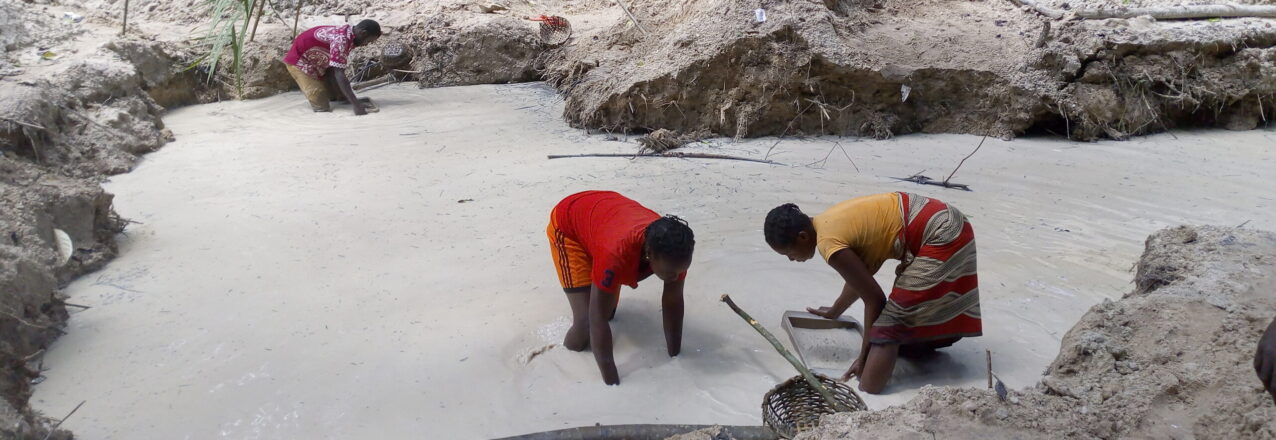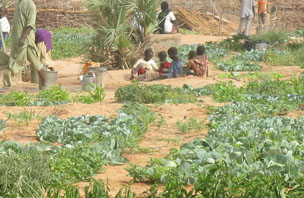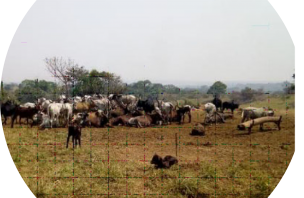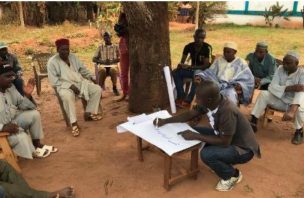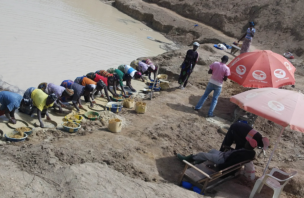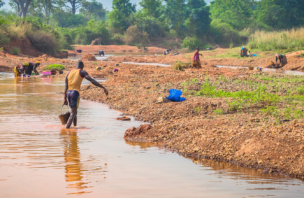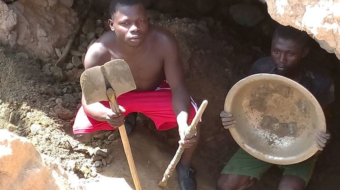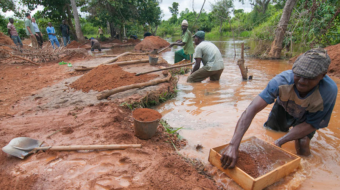Promoting legal, responsible diamond and gold supply chains and strengthening social cohesion in the Central African Republic (CAR).
The Artisanal Mining and Property Rights (AMPR) project is a Task Order under the Strengthening Tenure and Resource Rights (STARR) II Indefinite Delivery Indefinite Quality Contract (IDIQ), centrally managed by E3’s Land and Urban Office in Washington. AMPR supports the establishment of legal, responsible supply chains and strengthening peace in artisanal mining areas primarily in the Central African Republic (CAR). AMPR can also provide on-demand, short-term technical assistance to any USAID Mission or Operating Unit (OU) on development challenges associated with Artisanal and Small-scale Mining (ASM).
Watch the video on AMPR-Supported Peacebuilding Committees in the Central African Republic
Background
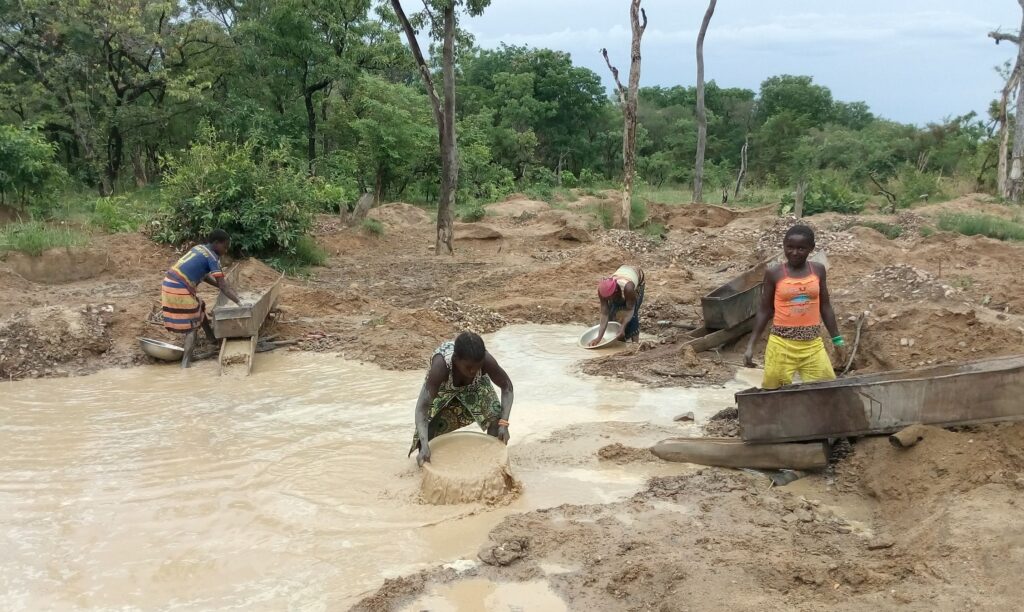
Legal and responsible artisanal and small-scale mining (ASM) supply chains can promote peace and stability and provide livelihoods for men and women. However, the ASM sector remains largely informal and rife with criminal activity and corruption. The majority of ASM diamond and gold exports flow through illegal channels, depriving governments of revenues, with diggers and miners suffering from conflict and violence. The Central African Republic is particularly dependent on the artisanal mining economy. Expansion of compliant zones for diamond exports and strengthening the legal trade is needed to help rebuild the country’s economy and reduce violence.
From 2007 to 2013, Property Rights and Artisanal Diamond Development (PRADD) I project assisted the government of the CAR in Lobaye, Sangha Mbaere, and Mambere Kadei provinces to improve the Kimberley Process Certification Scheme (KPCS) by tracing diamond sales, strengthening mechanisms to issue licenses to artisanal miners, assisting communities with livelihood diversification, and mitigating environmental damage from ASM. PRADD I closed early in 2013 due to the fall of the Bozize regime. USAID launched Property Rights and Artisanal Diamond Development (PRADD) II in CAR in 2015, focused on developing the legal diamond supply chain per the KPCS framework for CAR.
Overview
Launched in 2018, USAID’s Artisanal Mining and Property Rights (AMPR) project builds on a long history of USAID investment in responsible sourcing in the CAR through the Property Rights and Artisanal Diamond Development (PRADD) projects. AMPR supports the establishment of legal, responsible supply chains and strengthens peace in artisanal mining areas in CAR, and provides technical assistance to USAID missions through four objectives:
Objective I Assist the government of CAR to improve compliance with Kimberley Process requirements to promote licit economic activities.
Objective 2 Strengthen community resilience, social cohesion, and responses to violent conflict.
Objective 3 Increase awareness and understanding of the opportunities and challenges of establishing responsible gold supply chains
Objective 4 Improve USAID programming through increased understanding of linkages between artisanal and small-scale mining and key development issues
Approach & Achievements
- IMPROVING KIMBERLEY PROCESS COMPLIANCE. A multilateral trade regime established in 2003, the Kimberley Process (KP) aims to stem the flow of conflict diamonds. AMPR seeks to improve CAR’s compliance with the KP through national and regional coordination, diplomacy, awareness raising, policy reform, formalization, institutional strengthening, and targeted technical and material assistance. Achievements to date include:
-
- Provided technical and logistical support to design legal texts for the CAR Kimberley Process Permanent Secretariat (KPPS), which the CAR president validated by decree in September 2020.
- Provided technical support for producing an action plan for strengthening diamond supply chain governance, including regulatory and institutional changes. The Ministry of Mines and Geology validated the action plan submitted to the Ministry of Planning and Economy for integration into the CAR National Strategic Plan for 2020–2021.
- Local pact signed by the Société Centrafricaine d’Exploitation Diamantifère (SCED)-Ndéléngué mining community to serve as a pilot zone exploitation artisanale (ZEA) in the Nola subprefecture.
- Supported joint missions with the CAR Kimberley Process National Monitoring Committee (CNS PK), resulting in the reconstitution of the Kimberley Process Local Monitoring Committees (Comités Locaux de Suivi, or CLS) in the eight Kimberley Process (KP) compliant zones. The CLS prepared 22 quarterly reports documenting KP compliance data for their respective zones.
- Produced 20 radio programs on the KP and ASM for local and national dissemination.
- Produced and displayed 200 posters titled “Becoming an Artisanal Miner under the Law” at the Mining Ministry, the Tax Office, and other public places in the capital, Bangui and the subprefectures of Boda, Berberati, Carnot, and Nola.
- Completed and printed 200 copies of a French-Sango lexicon of artisanal mining terms used by artisanal miners and stakeholders in the supply chain.
- STRENGTHENING SOCIAL COHESION. In cooperation with CAR’s Ministry of Humanitarian Action and its network of Community Peace and Reconciliation Committees, AMPR is supporting inclusive community dialogue to resolve conflict over land and natural resources; strengthening committees, enhancing the role of women in artisanal mining, and facilitating inter-ministerial collaboration. Illustrative achievements:
-
- Trained 21 women’s and mixed-gender livelihoods groups on agricultural production, working effectively as associations, village savings and loans, and basic literacy. The groups successfully set up nursery beds and demonstration gardens.
- Trained 10 women’s groups in soap production in the subprefectures of Nola, Carnot and Boda.
- Prepared and distributed 200 copies of a poster on COVID-19 precautions for artisanal mining communities
- Set up ad hoc COVID-19 response bi-weekly call with World Bank APCM, European Union GODICA, and international NGOs and consulting firms to coordinate support to Ministry of Mines and Geology. The team held 17 bi-weekly calls.
- UNDERSTANDING RESPONSIBLE GOLD SUPPLY CHAINS. Applied research on CAR’s gold supply chain aims to point to strategies to align CAR’s growing gold production with national and international laws and norms. Progress to date includes:
-
- Produced a gold sector Market Readiness Report, drawing on the gold diagnostic study’s findings.
- IMPROVING ASM PROGRAMMING. In addition to its CAR-focused work, AMPR is assessing links between ASM and development issues; facilitating knowledge sharing and improved understanding of ASM in development; participating in international forums; and demonstrating thought leadership through academic articles. Illustrative activities to date:
-
- Produced issue brief on Gender Issues in the Artisanal and Small-Scale Mining Sector.
Geographic Focus
USAID AMPR implements field activities in the southwest part of the country over the Carnot Sandstone, the location of alluvial diamond deposits. While gold is mined throughout, most gold deposits are on the northwestern fringes of this geological formation.
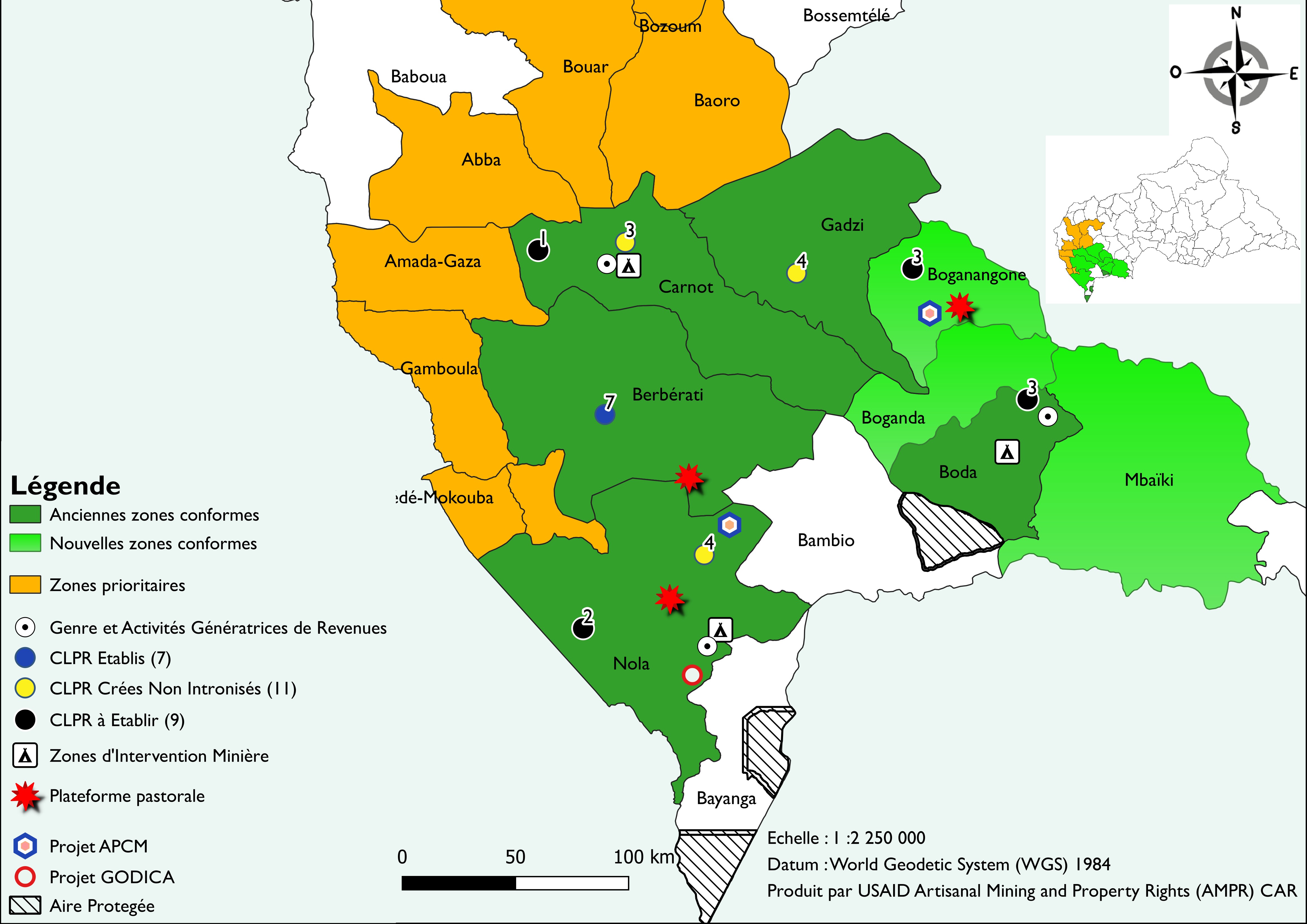
Download the AMPR Fact Sheet Read the AMPR Technical Assistant to Missions Info Sheet


